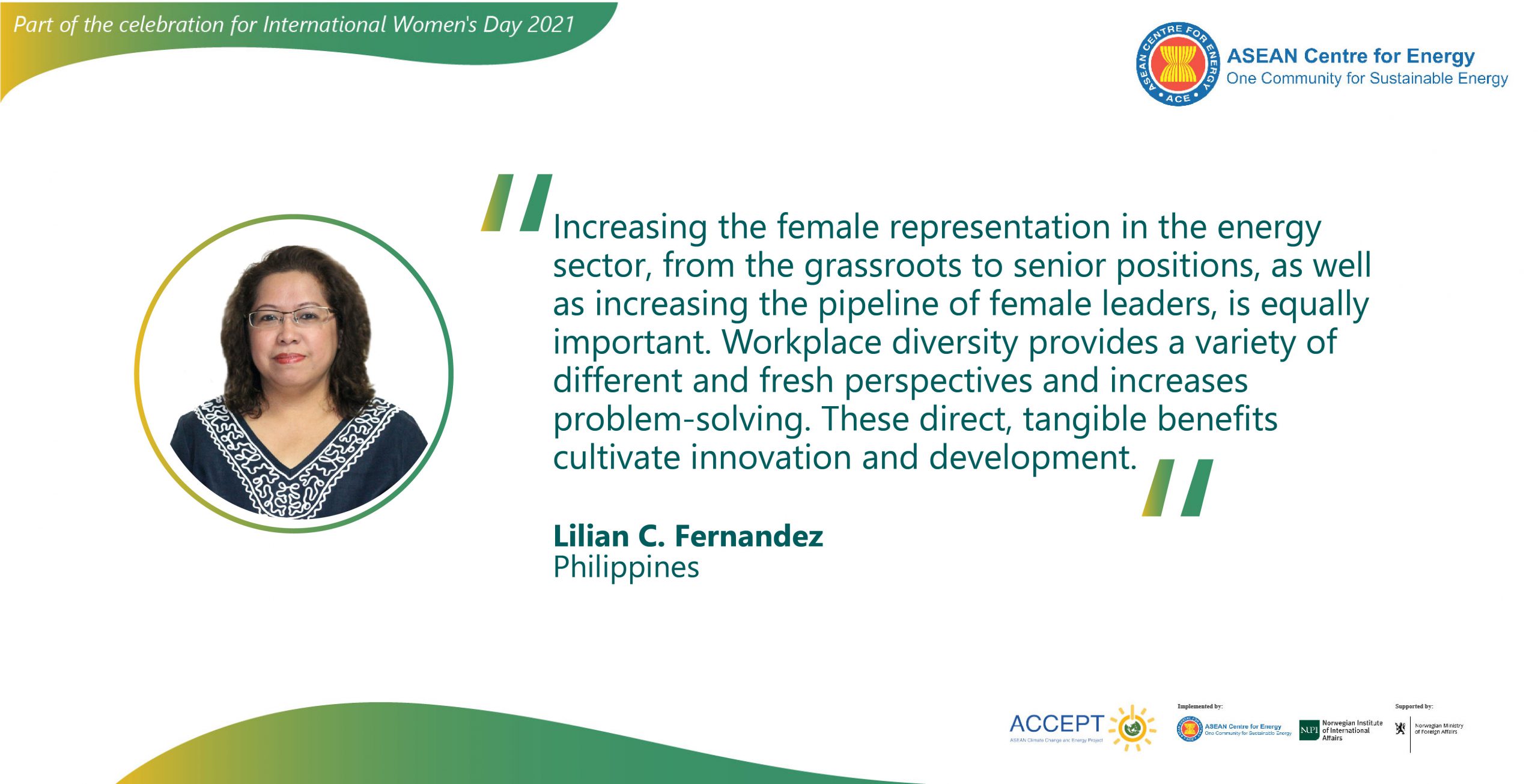Menu
From Philippines , Lilian C. Fernandez, Division Chief; Energy Coordination and Cooperation; Energy Policy and Planning Bureau; Department of Energy, gave a perspective about women in energy and climate.
 Do you think women’s role is vital in energy transition? If yes, why?
Do you think women’s role is vital in energy transition? If yes, why?
The role that women will play in the energy transition is vital and could become a key driving force in accelerating this transformation.
The urgent global action to address climate change requires a paradigm shift across all sectors and more significantly, in the energy sector. The energy transition towards secured, sustainable, resilient, and clean energy is underway and demonstrates the future of the sector.
Gender diversity is critical in advancing this change and the contribution of women in the planning and implementation of development strategies cannot be over-emphasized nor ignored.
Women, particularly in developing countries like the Philippines, are the primary consumers of energy and are most affected by the lack of clean, affordable, and reliable energy. This underscores the value of women’s perspective in policies which, ultimately, contributes to improved robustness of decision making.
As a major influence on family and household decisions, women also play an active role in implementing energy programs and projects. It is therefore imperative that women are involved in stakeholder consultations, and gender-specific concerns are considered in plans and programs.
Increasing the female representation in the energy sector, from the grassroots to senior positions, as well as increasing the pipeline of female leaders, is equally important. Workplace diversity provides a variety of different and fresh perspectives and increases problem-solving. These direct, tangible benefits cultivate innovation and development.
How could women overcome the challenges in male-dominated working environment, especially in energy sector?
Acknowledging the enhanced contribution of women to the development of the energy sector should lead to equal opportunities for men and women to participate in the governance and the development and implementation of plans, policies, and programs.
From the time the Philippine Department of Energy (DOE) was created in 1992 up to the present time, several women have played a significant role in the management of the office and in the key technical bureaus. I have seen women engineers, geologists, economists, and planners hold key positions in DOE. I believe that to attract and retain women in the energy sector, it is very important to have policies in the workplace that support women to obtain skills that would help them develop professionally and raise their confidence and ambition, and opportunities for them to secure leadership roles.
Support from fellow women in the workplace will also be very helpful. Having a female mentor from the same sector will not only build skills and knowledge but would also inspire women to persevere and focus on the challenging nature of the work.
